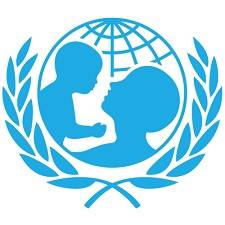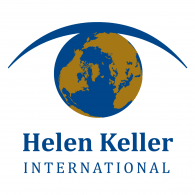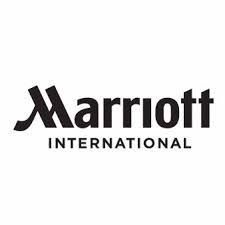Job Vacancies @ United Nations International Children’s Emergency Fund (UNICEF) – 3 Positions
 United Nations International Children's Emergency Fund (UNICEF) works in some of the world’s toughest places, to reach the world’s most disadvantaged children. To save their lives. To defend their rights. To help them fulfill their potential. Across 190 countries and territories, we work for every child, everywhere, every day, to build a better world for everyone.
United Nations International Children's Emergency Fund (UNICEF) works in some of the world’s toughest places, to reach the world’s most disadvantaged children. To save their lives. To defend their rights. To help them fulfill their potential. Across 190 countries and territories, we work for every child, everywhere, every day, to build a better world for everyone.
United Nations International Children's Emergency Fund (UNICEF) is recruiting to fill the following positions:
1.) International Consultant for Mapping and Assessment of Community-based child Protection Groups and Development of Tools to Strengthen their Capacity to Address Violence Against Children including Female genital mutilation (FGM) and Child Marriage
2.) National Consultant to Support Coordination, Implementation, Monitoring and Evaluation of Learning Passport Platform Initiative
3.) Nutrition Officer, NOB
See job details and how to apply below.
1.) International Consultant for Mapping and Assessment of Community-based child Protection Groups and Development of Tools to Strengthen their Capacity to Address Violence Against Children including Female genital mutilation (FGM) and Child Marriage
Job No: 553641
Location: Abuja
Contract type: Consultant
Level: Consultancy
Categories: Child Protection
For every child, Protection
- Nigeria has made significant progress towards strengthening the child protection systems at both Federal and State levels.
- This has been achieved through the setting up of coordination structures to address violence and other child protection challenges, adoption of legal frameworks to support the implementation of child focused interventions; the setting up of gender desks in police stations at LGA levels; and the development of an information management system to provide data on case management and strengthen the delivery of services.
- Most recently, the country initiated the mapping and assessment of the social and para-social service workforce with a view to developing training materials to strengthen their capacity based on the gaps identified.
- While a lot has been done to strengthen institutional prevention and response framework at the federal and state levels, the capacity of the country to protect children will remain limited unless and until a parallel effort is conducted at the community level.
- This is because the current social workforce, which stands at approximately 10,000 social workers for a population of more than 200 million inhabitants, is too small to efficiently respond to incidents of violence and other child protection challenges at the household or community levels.
- There is increasing recognition of the need for action at the community level, and this has found expression in community-based child protection groups. Community-Based Child Protection Groups (CBCPGs) refer to a collection of people, often volunteers, that aim to ensure the protection and wellbeing of children in a village, urban neighborhood, or other community.
- If these groups are systematically linked to formal mechanisms and service providers at the LGA and state levels, they have the potential to become a critical and indispensable component of the national child protection system.
- Their presence in the communities places them in a vantage position to perform the core functions of identifying, reporting, and responding to cases, including making referrals to appropriate mechanisms and agencies.
- UNICEF has invested in various community structures such as the Child Protection Network in the early 2010s, the community-surveillance teams within the FGM programmes in five focus states in the south of the country (Imo, Osun, Oyo, Ekiti, and Ebonyi) which was scaled-up within the Spotlight Initiative to address violence against women and girls in additional states (Lagos, Cross River, Adamawa and Sokoto), and other community-based women, youth and traditional institutions.
- These groups were sensitized on child protection issues, especially as it relates to girls, and were able to provide substantive results in supporting children and families who had experienced incidents of violence and other child protection challenges.
- Many other groups have also been set up by other donor agencies and institutions to support community focused interventions in other sectors like health and social protection.
- The typologies of these groups differ, depending on the level of community ownership and involvement in its establishment, administration and accountability.
- Despite the huge potentials of these groups, it is important to adopt an evidence-based approach in determining their effectiveness and efficiency, as well as the opportunities for sustainability and scalability.
- This entails an inquiry into the models and approaches of existing CBCPGs, the process of assignment of roles and responsibilities to its members, their legitimacy, governance structures and modus operandi in a systematic way.
- It is also important to evaluate the knowledge and capacity gaps of these groups with a view to determining how they can be strengthened to better deliver a defined package of services to children and households in the community. Informal engagement and interactions with some of these existing groups appear to indicate that the groups would benefit from being further structured and strengthened in their capacity to prevent and respond to child protection challenges.
- Beyond the groups that are known to the Federal Ministry of Women Affairs and UNICEF, many other structures exist building on community-based reporting and resolution mechanisms that would need to be further understood and brought within the current child protection system being developed for the country, particularly as they relate to FGM, Child Marriage and violence against children.
- For this reason, UNICEF is seeking to recruit a consultant to undertake the development of a framework for the mapping of existing community-based child protection groups at community levels in 13 States (Lagos, Cross River, Ebonyi, Kaduna, Kano, Sokoto, Imo, Osun, Oyo, Ekiti, Borno, Yobe and Adamawa) and to develop the tools to strengthen these entities to support the efforts of the government to strengthen the child protection system in Nigeria.
(adsbygoogle = window.adsbygoogle || []).push({});
How can you make a difference?
The Consultant(s) working under the supervision of the UNICEF Child Protection Chief, in close collaboration with the Child Protection Manager and the Child Protection Specialist on Social Welfare, will be responsible for the following:
Project outline and validating of activities:
- Develop an inception report which outlays the methodology for the assignment and data collection tools - to be done remotely ahead of traveling to Nigeria.
- Undertake a Desk Review of available documents and evidence (both quantitative and qualitative) and undertake a documentary analysis, identifying evidence gaps.
Mapping and assessment of structures and mechanisms at community level:
- The assessment will include elements related to the linkages between the informal and the formal (i.e. sanctioned by the government and guided by laws, regulations, and policies) child protection system to support acceptance of services and improved coordination between the two systems.
- The focus group discussions will include children and young persons, including adolescent girls to assess the level to which existing community structures respond to child protection needs within communities.
- In collaboration with any institution designated by UNICEF, to undertake a mapping of existing community-based protection groups (e.g. processes of group formation and participant selection, form, functions and role, resourcing (training, material, financial), activities, and linkages with formal and non-formal child protection systems.
Data collection phase:
- The Consultant will adopt a mixed method approach which combines analysis of available quantitative and qualitative data and includes key Informant Interviews and Focus Group discussions.
- This will include developing tools for technical assistance (interview guides, and questionnaire templates).
- The assessment will be carried out in the 13 states namely, Lagos, Cross River, Ebonyi, Kaduna, Kano, Sokoto, Imo, Osun, Oyo, Ekiti, Borno, Yobe and Adamawa.
- Two LGAs in each of the states will be selected for the assessment.
- An institution with requisite competence will be selected and will undertake the field assessment under the guidance of the Consultant.
- Provide guidance for the drafting of the report and analysis of the mapping and assessment of community-based child protection groups, drawing lessons that could be integrated into future programming in the area.
- Development of guidelines for supporting community-based child protection groups and capacity toolkit for strengthening CBCPGs for improved efficiency and effectiveness.
- Develop draft framework for guidelines.
- Populate framework including best practices in CBCPGs, lessons learned and practical measures
- Develop infographics for toolkit (will need to outsource this to layout artist or seek internal support from UNICEF)
- Finalise draft of guidelines (with an admin note) and capacity toolkit.
- Pre-test the capacity toolkit through the facilitation of a TOT workshop with key stakeholders, develop a monitoring and evaluation plan and drafting a final report of the consultancy assignment.
- Pre-test toolkit with key a facilitation of a TOT with key stakeholders and officials of the CBCPGs.
- Develop a monitoring and evaluation framework for the community-based child protection groups.
- Draft a final report of the consultancy.
Expected products
- Draft inception report.
- Report of the rapid assessment of the community-based child protection groups.
- Guidelines for supporting community-based child protection mechanisms.
- Administrative Note to accompany the guidelines developed.
- User-friendly toolkit for community-based child protection groups.
- Monitoring and evaluation framework
- Final report of consultancy assignment.
To qualify as an advocate for every child you will have
- Advanced University Degree (Master / PG) in a relevant field of study (Law, Social sciences/Humanities/Social Work) with minimum of 5 years of relevant experience.
- Excellent knowledge of statistics, social science research, social service systems, community-based mechanism, child protection systems, case management and development agenda
- At least 5 years of relevant experience in development of analytical reports, assessment, strengthening of community-based child protection groups.
- Proven experience in quantitative and qualitative data analysis, policy, research, and report writing.
- Knowledge of human rights-based and gender approach to programming
- Experience in toolkit development and facilitating consultations with government representatives, NGOs, academia, children, community-based groups, children, and other stakeholders
- Strong analytical skills – references to previous work or institutions
- Previous experience with UNICEF is an advantage.
- Fluency in English
- Excellent writing and analytical skills.
Application Closing Date
11th September, 2022 (W. Central Africa Standard Time).
How to Apply
Interested and qualified candidates should:
Click here to apply online
Note
- UNICEF is committed to diversity and inclusion within its workforce, and encourages all candidates, irrespective of gender, nationality, religious and ethnic backgrounds, including persons living with disabilities, to apply to become a part of the organization.
- UNICEF has a zero-tolerance policy on conduct that is incompatible with the aims and objectives of the United Nations and UNICEF, including sexual exploitation and abuse, sexual harassment, abuse of authority and discrimination.
- UNICEF also adheres to strict child safeguarding principles. All selected candidates will be expected to adhere to these standards and principles and will therefore undergo rigorous reference and background checks.
- Background checks will include the verification of academic credential(s) and employment history.
- Selected candidates may be required to provide additional information to conduct a background check.
Remarks:
- Only shortlisted candidates will be contacted and advance to the next stage of the selection process.
- Individuals engaged under a consultancy or individual contract will not be considered “staff members” under the Staff Regulations and Rules of the United Nations and UNICEF’s policies and procedures and will not be entitled to benefits provided therein (such as leave entitlements and medical insurance coverage).
- Their conditions of service will be governed by their contract and the General Conditions of Contracts for the Services of Consultants and Individual Contractors.
- Consultants and individual contractors are responsible for determining their tax liabilities and for the payment of any taxes and/or duties, in accordance with local or other applicable laws.
- The selected candidate is solely responsible to ensure that the visa (applicable) and health insurance required to perform the duties of the contract are valid for the entire period of the contract.
- Selected candidates are subject to confirmation of fully vaccinated status against SARS-CoV-2 (Covid-19) with a World Health Organization (WHO)-endorsed vaccine, which must be met prior to taking up the assignment.
- It does not apply to consultants who will work remotely and are not expected to work on or visit UNICEF premises, programme delivery locations or directly interact with communities UNICEF works with, nor to travel to perform functions for UNICEF for the duration of their consultancy contracts.
2.) National Consultant to Support Coordination, Implementation, Monitoring and Evaluation of Learning Passport Platform Initiative
Job No: 554795
Location: Abuja
Contract type: Consultant
Level: Consultancy
Categories: Education
Duration: 11.5 months
For every child, Education
How can you make a difference?
- The Learning Passport, a partnership between UNICEF, Microsoft, Cambridge, and supported by the Boston Consulting Group, has been established to
- Provide local, contextualized content with a supplementary library of global content, mapped together via research by Cambridge;
- Provide a platform to serve this content to children and youth online or offline, via a platform being developed by Microsoft, and
- With an individualized record of learning for a user, that is portable across physical and digital borders.
- The Learning passport, as an extraordinary emergency response, will create country-level sites available that would like to make access to curriculum and learning materials available for students with connectivity both at school and at home.
- The envisioned digital platform aims to enhance continued engagement with families and parents on learning at home by providing practical resources and materials that can be applied in home settings.
- The envisioned digital platform aims to enhance continued engagement with families and parents on learning at home by providing practical resources and materials that can be applied in home settings.
- Its second aim is to strengthen professional development opportunities and facilitate collaboration between educators at preschool, primary and secondary education levels, and other staff on sharing ideas, best practices and activities that can be implemented in schools.
- COVID-19 pandemic presents a unique challenge for Nigeria’s education system and the emerging situation is going to transform the way public education is being delivered ever before.
- With this new normal, education system both private and public is being prepared to deliver blended form of classroom- both face-to-face and through using online digital platforms.
- In Nigeria, there have been efforts by governments, private sector and key education stakeholders to promote continued learning and bridge potential learning gaps.
- These efforts range from large-scale, low-tech solutions that do not require internet-enabled devices (radio and television), to high tech alternatives (virtual classrooms, video conferencing, animated lessons and online resources libraries) that require internet-enabled devices.
- In short, while the key focus of this initiative is to improve the quality and ensure continuity of learning for children whose education has been disrupted by emergencies, the medium and long-term goal is to help establish a quality system of online and offline education, collaboration and support to children and parents.
To qualify as an advocate for every child you will have
Education:
- An Advanced University Degree (Master's Degree or higher) in Computer Science / Education preferably in Curriculum Design and Alternative Learning Program, or any other Social Science Degree
- A First University Degree in a relevant field combined with 2 additional years of professional experience may be accepted in lieu of an Advanced University Degree.
Experience:
- At least five years of professional work experience in IT development and education technology, particularly in developing countries
- At least five years of professional work experience related to formal and non-formal education, teacher training, e-learning and distance learning.
- At least two years of proven experience developing results frameworks, data collection tools and methodologies, survey instruments, using platform analytics, and overseeing large-scale data collection
- At least two years of demonstrable experience with quantitative and qualitative data analysis, data visualization (reports and dashboards) and use for decision-making
- At least two years of proven experience in project management/programme coordination, involving multiple stakeholders.
- Extensive experiences (at least two years) in deployment of learning management system and/or digital learning programme in large scale
- Excellent knowledge of information management systems.
- Familiarity with digital learning design and principles of inclusive technology design, namely Universal Design for Learning
- Familiarity with impact evaluation methodologies
- Work with UN/UNICEF or other international organization would be considered as an asset.
Language:
- Excellent oral and written communications in English required. Consultant should be at ease in presentations and meetings with different high-level stakeholders and officials.
Other competencies:
- Demonstrated ability and experience in coordination and supervisions is required.
- Ability to work under pressure .
Application Closing Date
14th September, 2022 (W. Central Africa Standard Time).
How to Apply
Interested and qualified candidates should:
Click here to apply online
Note
- UNICEF is committed to diversity and inclusion within its workforce, and encourages all candidates, irrespective of gender, nationality, religious and ethnic backgrounds, including persons living with disabilities, to apply to become a part of the organization.
- UNICEF has a zero-tolerance policy on conduct that is incompatible with the aims and objectives of the United Nations and UNICEF, including sexual exploitation and abuse, sexual harassment, abuse of authority and discrimination.
- UNICEF also adheres to strict child safeguarding principles. All selected candidates will be expected to adhere to these standards and principles and will therefore undergo rigorous reference and background checks.
- Background checks will include the verification of academic credential(s) and employment history.
- Selected candidates may be required to provide additional information to conduct a background check.
Remarks:
- Only shortlisted candidates will be contacted and advance to the next stage of the selection process.
- Individuals engaged under a consultancy or individual contract will not be considered “staff members” under the Staff Regulations and Rules of the United Nations and UNICEF’s policies and procedures and will not be entitled to benefits provided therein (such as leave entitlements and medical insurance coverage).
- Their conditions of service will be governed by their contract and the General Conditions of Contracts for the Services of Consultants and Individual Contractors.
- Consultants and individual contractors are responsible for determining their tax liabilities and for the payment of any taxes and/or duties, in accordance with local or other applicable laws.
- The selected candidate is solely responsible to ensure that the visa (applicable) and health insurance required to perform the duties of the contract are valid for the entire period of the contract.
- Selected candidates are subject to confirmation of fully vaccinated status against SARS-CoV-2 (Covid-19) with a World Health Organization (WHO)-endorsed vaccine, which must be met prior to taking up the assignment.
- It does not apply to consultants who will work remotely and are not expected to work on or visit UNICEF premises, programme delivery locations or directly interact with communities UNICEF works with, nor to travel to perform functions for UNICEF for the duration of their consultancy contracts.
3.) Nutrition Officer, NOB
Job no: 554404
Location: Abuja
Contract type: Fixed Term Appointment
Level: NO-2
Categories: Nutrition
How can you make a difference?
- Reporting to the Nutrition Manager, L4, the Nutrition officer will provide professional technical, operational and administrative assistance throughout the programming process for the nutrition programs/ projects through the application of theoretical and technical skills in collecting, analyzing and presenting technical program information while learning organizational rules, regulations and procedures to support the development and formulation of the Nutrition programs.
- At the same time, support the nutrition team on advocacy, policy formulation, and creating an enabling environment for the implementation of nutrition programs in Nigeria.
- The candidate will equally track budgetary allocation and financing of nutrition interventions (Nutrition specific and Nutrition sensitive) in Nigeria, collaborate with internal and external stakeholders on policy strengthening activities and will represent UNICEF in advocacy platforms (e.g., Scaling Up Nutrition Movement) and activities as appropriate.
To qualify as an advocate for every child you will have
Support to programme development and planning:
- Conduct and update the situation analysis for the programme sector(s) for the development, design and management of multi-sectoral nutrition related policies and financing. Research and report on development trends (e.g., political social, economic, nutrition, health) for higher management use to enhance cross sectoral co-ordination, efficiency and delivery of results.
- Contribute to the development/ establishment of section program goals, objectives and strategies including in emergencies, and results-based planning through analysis of nutrition needs and areas for intervention and submission of recommendations for priority and goal setting.
- Provide technical and operational support throughout all stages of programming processes by executing/administering a variety of technical program transactions, preparing materials/documentations and complying with organizational processes and management systems, to support program planning, results-based planning (RBM) and monitoring and evaluating results.
- Work closely and collaboratively with internal and external stakeholders to ensure the achievement of concrete and sustainable results for nutrition, including, to prepare required documentations/materials to facilitate the program review and approval process.
Programme management, monitoring and delivery of results:
- Provide technical support and analytics on the preparation, design, and financing for the nutrition sector, alongside, plus collaborate with internal and external colleagues and partners to discuss operational and implementation issues, provide solutions, recommendations and/or alert appropriate officials and stakeholders for higher-level intervention and/or decision.
- Ensure availability of comprehensive and current data on maternal and child nutrition to guide policy development as well as design and management of nutrition programmes/projects while keeping record of reports and assessments for easy reference and/or to capture and institutionalize lessons learned.
- Participate in strategic programme discussions on the planning of nutrition programmes/projects to ensure increases in domestic resource allocation for nutrition as well as radical improvements in quality and coverage of nutrition interventions
- Ensure alignment of UNICEF’s Strategic Plans and Country Programme with national priorities, plans, and competencies. and coherence/integration with the United Nations Sustainable Development Cooperation Framework (UNSDCF) formerly named United Nations Development Assistance Framework (UNDAF), regional and global strategies.
- Establish specific goals, objectives, strategies, and implementation plans for the sector(s) based on results-based planning terminology and methodology (RBM). Prepare required documentation for programme review and approval.
- Participate in monitoring and evaluation exercises, program reviews and annual reviews with government and other counterparts to assess programs/projects and to report on required action/interventions at the higher level of program management.
- Monitor and report on the use of section program resources (financial, administrative and other assets), verify compliance with approved allocation/goals, organizational rules, regulations/procedures and donor commitments, standards of accountability and integrity.
- Report on issues identified to ensure timely resolution by management/stakeholders. Follow up on unresolved issues to ensure resolution.
Technical and operational support to programme implementation:
- Conduct regular programme field visits and surveys, and exchange information with partners and stakeholders to assess progress and provide technical support. Take appropriate action to resolve issues and/or refer to relevant officials for resolution. Report on critical issues, bottlenecks, and potential problems for timely action to achieve results.
- Support the government to increase financing and coverage of services for the nutrition interventions especially prevention services at both national and sub-national levels.
- Efficiently manage internal and externally generated program funds.
Advocacy, networking and partnership building:
- Build and sustain effective close working partnerships with nutrition sector government counterparts and national stakeholders through active sharing of information and knowledge to facilitate program implementation and build capacity of stakeholders to achieve program goals and social justice, equity and rights of mothers, newborn and children.
- Prepare communication and advocacy products to highlight programme goals, achievements and/or needs to promote awareness, establish partnerships/alliances and support fund raising for nutrition programmes (maternal, newborn and child survival and development).
- Participate in appropriate inter-agency meetings/events on programming to collaborate with nutrition partners.
Innovation, knowledge management and capacity building:
- Promote critical thinking, innovative approaches and good practices for sustainable nutrition programme/project initiatives through advocacy and technical advisory services.
- Keep abreast, research, benchmark, and implement best and cutting-edge practices in nutrition management and information systems. Institutionalize and share best practices and knowledge learned.
- Contribute to the development of policies and procedures and introduce innovation and best practices to ensure optimum efficiency and efficacy of sustainable programmes and projects.
- Organize, plan and/or implement capacity building initiatives to enhance the competencies of clients and stakeholders to promote transformative and sustainable results on /nutrition-related programmes/projects.
Competencies
Competencies required for this post are:
- Builds and maintains partnerships
- Demonstrates self-awareness and ethical awareness
- Drive to achieve results for impact
- Innovates and embraces change
- Manages ambiguity and complexity
- Thinks and acts strategically
- Works collaboratively with others.
Application Closing Date
6th September, 2022 ( W. Central Africa Standard Time ).
Method of Application
Interested and qualified candidates should:
Click here to apply online
Note
- For every Child, you demonstrate:
- UNICEF’s Core Values of Care, Respect, Integrity, Trust and Accountability (CRITA) underpin everything we do and how we do it. Get acquainted with Our Values Charter: https://uni.cf/UNICEFValues
- During the recruitment process, we test candidates following the competency framework. Familiarize yourself with our competency framework and its different levels: competency framework here.
- UNICEF is committed to diversity and inclusion within its workforce, and encourages all candidates, irrespective of gender, nationality, religious and ethnic backgrounds, including persons living with disabilities, to apply to become a part of the organization.
- UNICEF has a zero-tolerance policy on conduct that is incompatible with the aims and objectives of the United Nations and UNICEF, including sexual exploitation and abuse, sexual harassment, abuse of authority and discrimination. UNICEF also adheres to strict child safeguarding principles. All selected candidates will be expected to adhere to these standards and principles and will therefore undergo rigorous reference and background checks. Background checks will include the verification of academic credential(s) and employment history. Selected candidates may be required to provide additional information to conduct a background check.
Remarks
- UNICEF’s active commitment towards diversity and inclusion is critical to deliver the best results for children. For this position, eligible and suitable female candidates are encouraged to apply.
- Mobility is a condition of international professional employment with UNICEF and an underlying premise of the international civil service.
- Only shortlisted candidates will be contacted and advance to the next stage of the selection process.
- UNICEF appointments are subject to medical clearance. Appointments are also subject to inoculation (vaccination) requirements, including against SARS-CoV-2 (Covid). Government employees that are considered for employment with UNICEF are normally required to resign from their government before taking up an assignment with UNICEF.
- UNICEF reserves the right to withdraw an offer of appointment, without compensation, if a visa or medical clearance is not obtained, or necessary inoculation requirements are not met, within a reasonable period for any reason.
Apply for job
Related Jobs
Discover more from Careerical eConsult
Subscribe to get the latest posts sent to your email.




